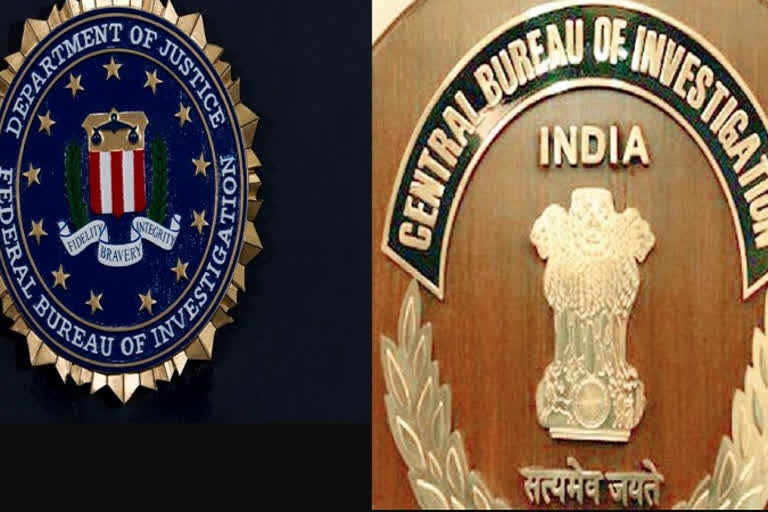சிபிஐ தொடர்பாக கவுகாத்தி உயர் நீதிமன்றம் அளித்த தீர்ப்பு ஒன்று ஒட்டுமொத்த சிபிஐ அமைப்பையும் விமர்சனத்துக்குள்ளாக்கியது. நவேந்திர குமார் என்பவர் சிபிஐ அமைப்புக்கு எதிராக கவுகாத்தி உயர் நீதிமன்றத்தில் மனு ஒன்றை தாக்கல் செய்தார், அதில் சிபிஐ அரசியலமைப்புக்கு எதிரானது. அது ஆளுங்கட்சிகளின் அடியாட்களாக செயல்படுகிறது என்பதற்கான விளக்கத்தை அளித்திருந்தார். இந்த வழக்கை விசாரித்த கவுகாத்தி உயர் நீதிமன்றம், 2013 நவம்பர் 6ஆம் தேதி சிபிஐ அரசியலமைப்பு சட்டத்துக்கு எதிரானது என தீர்ப்பளித்தது. உயர் நீதிமன்றம் ஒரு அமைப்பை அரசியலமைப்புக்கு எதிரானது என அறிவித்தால், அது தேசம் முழுமைக்கும் செல்லுபடியாகும்.
இந்தத் தீர்ப்பு ஆளும் மத்திய அரசாங்கத்துக்கு அதிர்ச்சியை ஏற்படுத்தியது. மத்திய அரசு உடனடியாக முன்னாள் அட்டார்னி ஜெனரல் குலாம் வஹாவடியை அப்போதைய உச்ச நீதிமன்ற தலைமை நீதிபதி சதாசிவத்தை சந்தித்து இந்தத் தீர்ப்புக்கு தடை வாங்க அனுப்பி வைத்தது. ஆனால் அப்போது நீதிமன்றத்துக்கு விடுமுறை நாள். எனவே நீதிபதி சதாசிவத்தை அவரது இல்லத்தில் வைத்து சந்தித்தார் குலாம், வழக்கின் தீவிரத்தை உணர்ந்த சதாசிவம் உடனடியாக உயர் நீதிமன்ற தீர்ப்புக்கு தடை உத்தரவு பிறப்பித்தார். அதனால்தான் சிபிஐ அமைப்பு இன்னும் இயங்கிக் கொண்டிருக்கிறது.
அரசியல் அடியாளாக, ஊழல் நிறைந்த அமைப்பாக சிபிஐ செயல்படுகிறது என்பதற்கு எடுத்துக்காட்டாக சிபிஐ உயர் அதிகாரிகள் அலோக் வர்மா, ராகேஷ் அஷ்தானா ஆகியோர் ஒருவர் மீது ஒருவர் குற்றம்சாட்டிக் கொண்ட சம்பவத்தை சொல்லலாம்.
இப்படியான சூழலில் சிபிஐ உருவான வரலாற்றை அறிவது அவசியமாகிறது. இரண்டாம் உலகப்போரின் காலகட்டத்தில், பிரிடிஷ் அரசாங்கம் சிறப்பு காவலர்கள் ஸ்தாபனத்தை அமைக்க அவசரச் சட்டம் கொண்டு வந்தது. இதுதான் பின்னாளில் சிபிஐ என்ற அமைப்பாக மாறியது.
1946ஆம் ஆண்டு சிறப்பு காவலர்கள் ஸ்தாபனச் சட்டத்தினால் டெல்லியில் சிபிஐ (டிஎஸ்பிஇ) அமைப்பு கொண்டு வரப்பட்டது. ஆரம்ப காலத்தில் குடிநீர் விநியோகத் துறையில் நடக்கும் ஊழல் குறித்து விசாரிப்பதற்காக கொண்டுவரப்பட்ட சிபிஐ, பின்னர் இந்தியாவில் உள்ள அனைத்து அரசு துறைகளிலும் தங்கள் ஆதிக்கத்தை செலுத்தத் தொடங்கியது.
1963ஆம் ஆண்டு உள்துறை அமைச்சகம் கொண்டு வந்த தீர்மானத்தின் மூலம் சிபிஐ என்ற அமைப்பு முழுமையாக உருவானது. டிஎஸ்பிஇ பிரிவு 6-இல், சிபிஐ அமைப்பானது யூனியன் பிரதேசங்களிலும், மத்திய அரசாங்க நிறுவனங்களிலும் மட்டுமே விசாரணை மேற்கொள்ளும். அதுவும் உயர் நீதிமன்ற, உச்ச நீதிமன்ற உத்தரவின்படி, மாநில அரசாங்கத்தின் விசாரணைகளில் சிபிஐ தலையிடாது என கூறப்பட்டிருந்தது.
உள்துறை அமைச்சகத்தின் தீர்மானத்தைதான் கவுகாத்தி உயர் நீதிமன்றம் அரசியலமைப்புக்கு எதிரானது என கூறியிருந்தது. உயர் நீதிமன்றம் சிறப்பு காவலர்கள் ஸ்தாபனச் சட்டத்தை செல்லாது என அறிவிக்கவில்லை. சிபிஐ என்ற அமைப்பு அந்த சட்டத்துக்கு ஏற்றார்போல் அமைக்கப்படவில்லை என்பதை சுட்டிக்காட்டியது.
இந்தக் குழப்பத்தை தீர்க்க 2017 நாடாளுமன்றக் குழு சிபிஐ தொடர்பாக சிறப்புச் சட்டம் இயற்ற முடிவு செய்யப்பட்டது. சிறப்பு காவலர்கள் ஸ்தாபனச் சட்டத்துக்கு உட்பட்டு, சிபிஐ அமைப்பானது தீவிரவாதம் மற்றும் மாஃபியா தொடர்பான குற்றங்களை மட்டும் விசாரிக்கலாம் என பரிந்துரைக்கப்பட்டது.
சிறப்பு சட்டத்தின் மூலம் சிபிஐயை தன்னாட்சி அமைப்பாக மாற்றிவிடலாம் என நாடாளுமன்றக் குழு பரிந்துரை செய்தது. ஆனால் மத்திய பணியாளர் மற்றும் பயிற்சித் துறை இதிலுள்ள சிக்கல்கள் எடுத்துக் கூறி, இது அரசியலமைப்புக்கு எதிரானது என தெரிவித்தது. அமெரிக்காவின் எஃப்பிஐ போல சிபிஐ தன்னாட்சி அமைப்பாக செயல்பட சிறப்பு அந்தஸ்து வழங்கலாம் என நாடாளுமன்றக் குழு பரிந்துரை செய்தது. ஆனால் அது இந்தியாவின் கூட்டாட்சி ஆன்மாவை சீர்குலைக்கக்கூடிய செயலாகும்.
தீவிரவாதம், ஆட்கடத்தல், போதைப் பொருள் விற்பனை உள்ளிட்ட தேசிய பாதுகாப்பை அச்சுறுத்துவதாக கருதப்படும் குற்றங்களை எஃப்பிஐ விசாரிக்கிறது. அமெரிக்காவில் இவற்றையெல்லாம் கூட்டாட்சிக்கு எதிரான குற்றங்கள் என்கின்றனர். ஆனால் இங்கே கூட்டாட்சிக்கு எதிரான குற்றங்களை நாம் வகைப்படுத்த வேண்டும். இங்கு சிபிஐ தனியாக இயங்குவதற்கு வாய்ப்பேயில்லை. இங்கு ஆளும் அரசு சிபிஐ அமைப்பை பயன்படுத்திக் கொள்கிறது என்ற விமர்சனம் உள்ளது.
அமெரிக்கவின் தேசபக்த சட்டம் 2001-இன் படி, எஃப்பிஐ அமைப்பைச் சேர்ந்தவர்கள் சந்தேகிக்கும் நபர்களின் அலைபேசி மற்றும் இணையதள சேவைகளை அவர்களின் அனுமதியின்றி கண்காணிக்க முடியும். எந்த முன் அனுமதியுமின்றி யார் வீட்டை வேண்டுமானாலும் சோதனை செய்ய முடியும். சந்தேகிக்கும் நபர்களின் வங்கிக் கணக்கு விவரங்களை நீதிமன்ற அனுமதியின்றி பெற முடியும். பொருளாதாரக் குற்றங்கள் அதிகரிக்கும் வேளையில், எஃப்பிஐ தனக்கான அதிகாரத்தை சரியான முறையில் பயன்படுத்திக் கொள்கிறது. இந்தியாவில் அரசியலமைப்பு சட்டத்தின் துணையில்லாமல் சிபிஐ இயங்க முடியாது.



